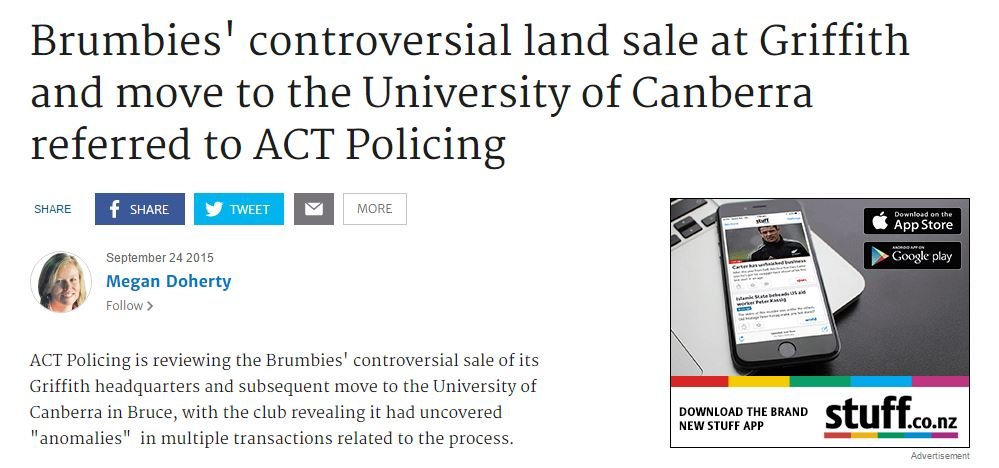So here’s a tale from the ‘only in rugby’ file.
An Australian Super Rugby franchise CEO comes into the job, and starts having a bit of a look through the filing cabinet left by not just one, but three predecessors over the previous twelve months. It’s fair to say it’s a bit of a mess; one bloke had terrible writing, the next bloke wrote everything in capital letters, and the other bloke didn’t really want the job anyway, so notes were kind of optional.
There’s literally stuff everywhere; the franchise had moved house six months earlier, and like all good moves, there was some stuff in this corner office destined to spend the rest of its days in a cardboard box.
One day, the CEO pulled out a file, moistened the thumb, and started having a read. He got through a few sheets of paper and something suddenly jumped off the page at him. “Hey, that’s a bit weird,” he thought to himself, as he continued to thumb through the rest of the pages. He set it to the side and looked through other files, but started finding more references to the first file.
Soon enough, the pile of files and paper on the side was taller than Brodie Retallick mid-lift. All the files related to the house move, and something wasn’t right. The CEO called in the lawyers for a second opinion, and they concurred; it really was a bloody tall pile of paper. And something wasn’t right.
So the CEO and the lawyers went along to the next house meeting, and told the board housemates of their findings. The house board had appointed the CEO to the job, but weren’t that long in the house themselves, having toppled the previous board in an AGM scene reminiscent of a battle for Middle Earth.
They all agreed that the pile of papers was indeed in the Retallick stratosphere, and that something wasn’t right, and called in the national union bigwigs. The bigwigs upgraded the height estimations to Retallick at full lift, and concluded that something definitely wasn’t right. They called in the consultants, who scoured through the pile of papers and every email sent and received in the history of the franchise, and confirmed everyone’s worst fears: something really, truly, wasn’t right.
The police were called. Everything was taken away. The CEO was a bit embarrassed about the fuss he’d caused, but at least he had a clean office. He got on with running the franchise; you know, record sponsorship deals, turning around a decade of operating loss into a probably seven-figure profit. Standard stuff. The balance sheet was humming nearly as well as the team on the field.
But in the shadows, all was not well. A few of the previous board housemates had heard that the police had a shedload of files, and they knew their fingerprints were all over it. If something wasn’t right, there was every chance the finger would be pointed at them.
So they did what every former board housemate would do when facing the prospect of a police investigation: they started rumours about the CEO.
For months this went on. The CEO knew the rumours were out there, but he also knew that he’d done the right thing. After all, everyone agreed that something wasn’t right. But the previous board housemates kept plotting away, operating at a stealth level somewhere between black ops and the inner workings of the breakdown. And it was working, because the new board was starting to doubt the CEO’s motives. “What if we look bad, too?” they started thinking.
Then one day, the CEO snapped. He’d had enough, and just started spewing forward his frustrations. And his timing couldn’t have been worse, because he was sitting in a radio studio at the time, giving an interview live to air with a host who couldn’t quite believe his luck.
The senior board housemate was furious. He called the national union CEO, they all met a few days later, and made the obvious decision: they told the CEO to hand in his keys. “And shut the hell up, you’re making us look bad,” they told him. “But we can’t really afford to pay for all your stuff, so just kind of stand over there for the moment. And shut the hell up.”
But the CEO was in an argumentative mood, so he went to the highest court in the land and told them how he was simply doing his job, that he’d found something that wasn’t right, and had it looked into with the full agreement of the board housemates, the national union bigwigs, and the consultants.
“Oh, well, carry on then, in that case,” the court told him. “At least until this time next week.”
And so the CEO returned to the house like nothing had happened. He was glad the team was on the other side of the world, and even if they were getting rogered by TMOs, at least they were playing well. They wouldn’t be distracted by this kind of circus.
Thankfully, this is just one of those glorified Australian rugby fairy tales, one that couldn’t possibly have any truth to it, right?
Except the Brumbies are hoping they can wake from this very nightmare sometime soon.



































